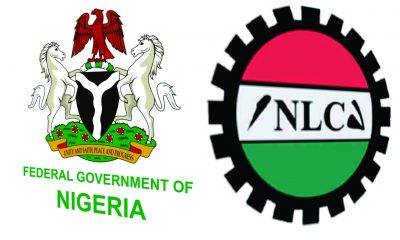Featured
Insecurity, Prevailing In Nigeria, Buhari, Lawan Admit … Boko Haram’s Continued Existence, Surprising, Says Buhari …As Senate Vows To Give Effect To Community Policing
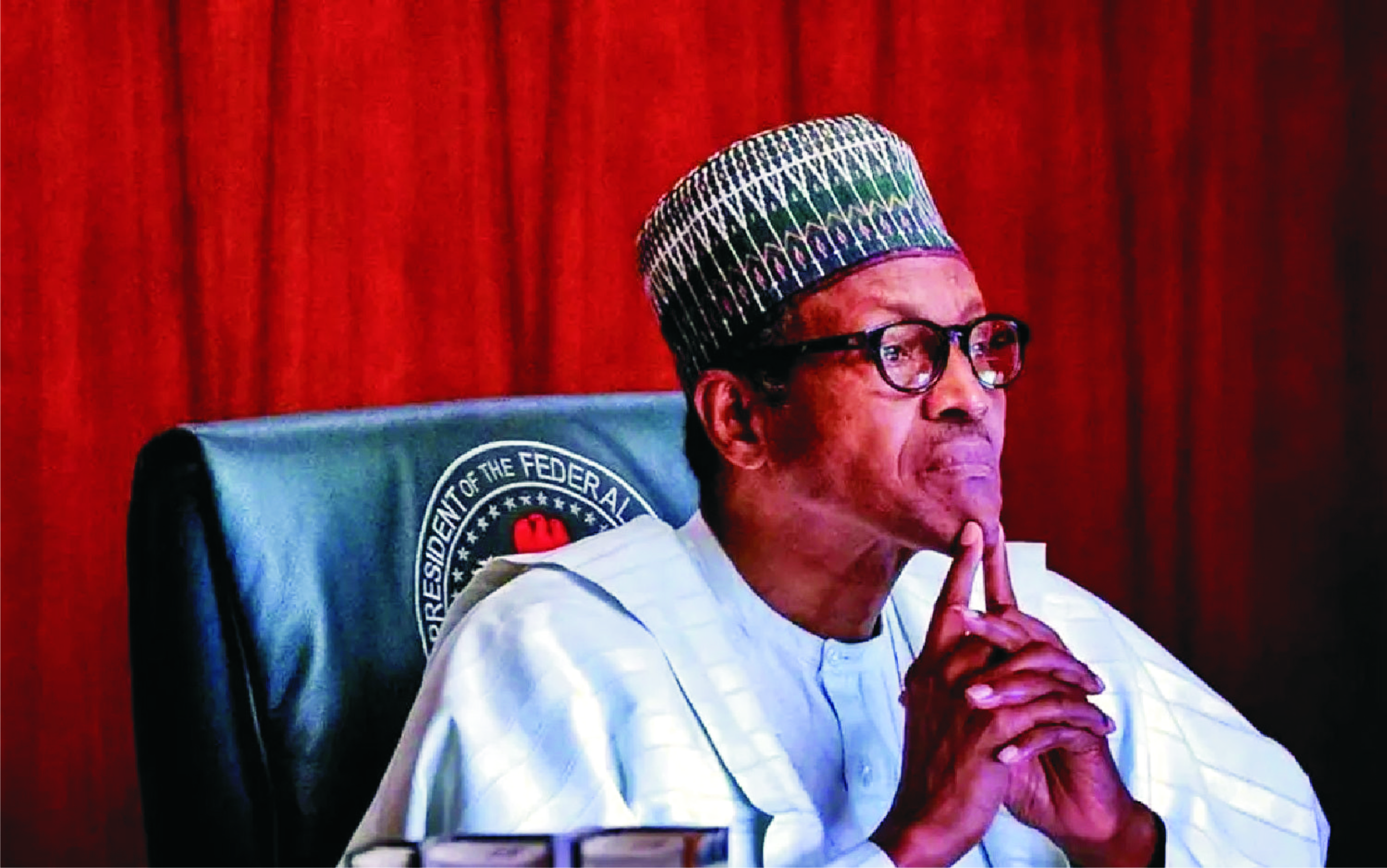
President Muhammadu Buhari says “harder times’’ await bandits whose disruptive activities have brought sorrow to Nigerians, kept many away from their means of livelihood, and heightened insecurity in parts of the country.
The President stated this when he received a delegation of Eminent and Respected Citizens of Niger State led by Governor Abubakar Sani Bello in State House, Abuja, yesterday.
Buhari maintained that the activities of the bandits had forced many to abandon their farms and homes, adding: “we will now be harder on them.
“I was taken aback by what is happening in the North-West and other parts of the country. During our campaigns, we knew about the Boko Haram. What is coming now is surprising.
“It is not ethnicity or religion; rather it is one evil plan against the country.
“We have to be harder on them. One of the responsibilities of government is to provide security. If we don’t secure the country, we will not be able to manage the economy properly.’’
He said the onslaught of the bandits had also affected agricultural output in some parts of the country, in spite of the favourable weather for farming, because many farmers were attacked, and others had to stay away for safety.
The President said the poverty level in the country would be significantly controlled by diversifying into agriculture, instead of the heavy reliance on oil, urging more Nigerians to take up agriculture.
Buhari said discovery of oil and gas reserves in Chad Basin, Benue trough and Bida, and some parts of Bauchi and Gombe, would further bolster current efforts to strengthen the Nigerian economy.
He advised leaders in the Niger Delta to “counsel those who blow up pipelines, resulting in spillages that affect farming and farmlands’’, noting that the loss had always been collective, sometimes, and turning hard working farmers to victims.
The eminent and respected persons said they needed to show appreciation to the President for his many interventions on infrastructure, security and appointment of indigenes of the state into key positions of government.
Speaking for the group, the former governor of Niger State, Aliyu Babangida, said activities of bandits had rendered many homeless, while others could no longer go the farms, thanking the President for taking a more decisive action by directing aerial protection by the military.
Babangida called on the President to intervene in completion of some federal roads, like the Mokwa-Birnin Gwari-Kaduna road and Kotongora road.
He also asked for more attention on the Minna airport, which should complement access to the FCT.
In his remarks, the Etsu Nupe, Alhaji Yahaya Abubakar, assured the President of continuous support, praying: “May God give you strength and wisdom to handle the affairs of our great country, Nigeria.’’
Meanwhile, the Senate President, Dr Ahmad Lawan, stated this in his speech to welcome senators from the Christmas and New Year recess.
He reiterated that the security situation in the country required serious attention and due consideration by the Senate, and indeed, the National Assembly.
He said that the Senate would engage the executive arm of government to discuss the implementation of the recently launched National Security Strategy (NSS) 2019.
He added that for a long time major stakeholders in the security of the country and police authorities appeared to achieve consensus on the necessity of introduction of Community Policing in the country.
Lawan said: “Recently, the security in the country had deteriorated and the attendant loss of lives is not acceptable.
“We need to secure the lives and property of our citizens, as enshrined in our Constitution.
“We all are witnesses to how our economy is also affected by the inclement security situation. Therefore, we need to speedily seek for solutions to fix the security problem bedevilling our dear country.
“There is urgent need for paradigm shift and reform of the architecture and structure of our security systems.
“Equally important is the citizen participation, and collaboration in providing security. In this regard, the Senate will engage the Executive arm of government to discuss the implementation of the recently launched National Security Strategy (NSS) 2019.
“For a long time, major stakeholders in the security of our nation and police authorities appear to achieve consensus on the necessity of introduction of Community Policing in the country.
“The Senate is going to pursue the implementation of community policing vigorously.
“To this end, the police authorities will be invited to brief and update the Senate on the progress made so far.”
Lawan stated that pursuant to the Legislative Agenda of the Ninth Senate, the next six months, like the first six months, will be a busy and engaging period to address the challenges facing the oil and gas sector as well as the nation’s electoral system.
He added that the National Assembly needed to start work on the Petroleum Industry Bill (PIB) immediately.
“The previous attempts in the sixth, seventh and eighth assembly sessions to pass the bills failed.
“This Senate should learn from the mistakes that militated against the successful passage of the bills.
“We need to break the jinx. We must avoid the pitfalls that worked against the passage of the previous bills,” Lawan said.
According to him, the Petroleum Industry Bill when passed will encourage investments into the oil and gas sector.
He said: “The International Oil Companies (IOCs) have deferred investments in the industry largely due to two decades of fiscal uncertainties occasioned by various failed attempts to deliver on the petroleum industry legislations that practically subsisted since 1967 and disputes associated with fiscal clarity of the 1993 Production Sharing Contracts.
“It is, therefore, imperative to speedily deliver on the reforms in the oil and gas sector to spur economic growth and prosperity for our people.
“It is my belief that when the petroleum industry governance and fiscal laws are delivered, economic uncertainties will be eliminated and conducive environment for exploration and production of oil and gas will be emplaced.”
He said that it is imperative that the National Assembly starts work to effect amendments in those areas of the nation’s electoral processes and procedures that posed some real challenges to free, fair and credible elections in previous elections, and insisted that for elections to express the will of the electorate, “they must be free and fair.”
Lawan said: “The Senate will consult widely with stakeholders to ensure that any legislative intervention reflects the necessary step to reforming the electoral environment.”
He recalled that before the Senate went on recess, it held roundtable discussions on the power, agriculture and solid minerals sectors with the view to identifying the challenges militating against the optimum performance by those sectors.
The Senate president said: “The reports of the discussions are ready and will be presented to the Senate by the appropriate committees.
“The reports will be debated in plenary and necessary resolutions will be taken.
“Ultimately, there will be shared responsibilities between the Legislature and the Executive on the way forward to address the various bottlenecks.”
He stated that it is an incontrovertible fact that the power sector cannot function optimally and thrive under the current circumstances.
He lamented that the anticipated outcome of improvement in effectiveness and efficiency of the privatization process has not been achieved, and doesn’t look feasible.
“Therefore, we have to take all necessary steps to salvage this indispensable sector.
“The ensuing debate on the report of the Roundtable Discussions will no doubt reveal the actions that the Federal Government will need to take,” Lawan said.
He also lamented that the solid minerals sector was neglected after the discovery of oil.
Lawan noted that though there have been attempts to revamp the sector, “it is yet to make any meaningful contribution to our economy.”
He added: “Today, the solid minerals sector accounts for only about 0.3% of our Gross Domestic Product.
“It is obvious that we need to take a holistic look into the challenges in the sector. It has also been reported that, presently, about 80% of mining operators fall into the category of artisanal and small-scale miners.
“This deserves our attention, to ensure inclusion, effective and efficient operations by those involved.”
The Senate President also reminded his colleagues that agriculture played an important and leading role in the nation’s economy before the discovery of oil.
He said: “Prior to the discovery of oil in Nigeria, agriculture was the mainstay of our economy.
“Agriculture was then the highest earner of foreign exchange for the country and Nigeria was also largely self-sufficient in food production.
“However, with the discovery of oil, the lure of petro-dollars turned the focus of the country from agriculture.
“Despite the present efforts of the Federal Government to enhance the performance of the agricultural sector, there is still much to be done to make the sector perform optimally.
“No doubt, the agricultural sector is critical for the diversification of the economy of Nigeria, as we can create jobs, create wealth, earn foreign exchange and ensure food security.
“We therefore, should ensure the restoration of the viability of this sector in order to utilize the abundant potentials and opportunities it offers.
“The challenges and work before us are enormous and indeed urgent.
“But, we have demonstrated patriotism, commitment, capacity and willingness in our previous handling of similar challenges.
“We can, therefore, equally tackle these issues with the same dispatch and commitment.”
However, the immediate past deputy president of the Senate, Chief Ike Ekweremadu, will soon reintroduce a bill for the creation of state police.
The Media Adviser to the Senator, Mr. Uche Anichukwu, stated this on Political Platform, a RayPower Radio programme, monitored in Abuja, yesterday morning.
Anichukwu said although the Bill, which Ekweremadu sponsored along with about 74 other members of the Senate Committee on Constitution Review in the 8th National Assembly could not progress beyond the first reading, there have been calls for the Bill to be reintroduced in the 9th Assembly.
Anichukwu said, “The senator has been receiving calls from across the country on the need to reintroduce the State Police Bill.
“I think the security realities in the country now are very clear and even among his colleagues, the popular opinion is that the bill should be reintroduced immediately.
“As a matter of fact, I just spoke with the Distinguished Senator this morning and he said plans were underway to reintroduce the bill along with his colleagues. It is an idea which time has come,” he said.
On how the bill would address the concerns over funding, possible abuse, among others, Anichukwu explained the bill would likely place funding for each State Police Service on the first line charge.
He also said that the funds could be channelled directly to them through the National Police Service Commission so as to make them financially independent of the state governors.
He said, “Regarding the worry that some states may not have the resources to pay state police personnel, it is important to note that it shall not be compulsory on any state to establish a state police.
“Just as the case of state universities, those who have the resources can start, while others who cannot will continue to rely on federal universities, in this case, federal police.
“First, the idea is to model the issue of policing after what we have in the National Judicial Council.
“The federal police will be responsible for the maintenance of public security, preservation of public order and security of persons and property throughout the federation.
“The governor may give lawful directive to the commissioner of police with respect to the maintenance and securing of public safety and public order as he may consider necessary.
“The commissioner is also empowered by the bill to request that matter be referred to the State Police Service Commission for review if he feels that the directive is unlawful or contradicts general policing standards or practice.
“In such circumstances, the decision of the State Police Service Commission shall be final and shall not be inquired into by any court.
“Again, a governor cannot just wake and sack a commissioner of police of his or her state.
“The commissioner shall only be removed by the governor upon the recommendation of the National Police Service Commission praying that he be so removed on grounds of misconduct in the performance of his official duties, serious breach of policing standards, among others.”
Meanwhile, against the backdrop of the planned implementation of the Federal Government’s community policing vision, the Police management team, led by the Inspector General of Police, Mohammed Adamu and the DIGs, yesterday, met with the chairman and commissioners of the Police Service Commission for several hours.
The meeting which held at the headquarters of the PSC at Federal Secretariat, brainstormed on the modalities for the employment of a total of 40, 000 personnel drawn from the 774 local government areas and the communities therein.
It was gathered that the meeting followed an unconfirmed communication which some states were brandishing as authorization to commence the recruitment of Police Constables for State Police Commands.
A senior source said that while he cannot discountenance that such communication exists, he is aware that many state police commands are not aware of such a directive including the Police Service Commission.
In driving the community policing vision, Adamu had during a meeting with the police hierarchy at Force Headquarters recently emphasized that tackling the mounting insecurity in the country, grassroots policing is the way to go.
He said, “In order to give full effect to our Community Policing Vision as a pathway towards bridging security gaps, we shall soon commence the implementation of the strategy across all the zones of the country.
“Hopefully, the breakdown of the Community Policing deployment plan will cover the recruitment of a total of forty thousand (40,000) Community Police Officers (CPOs) across the country.
“The CPOs will be recruited from within the communities where the prospective applicants reside and an average of 50 CPOs are to be engaged in each of the 774 local government areas.
“In addition, 1,300 CPOs will be drawn from professional bodies like the academics, road transport unions, artisans, traders associations, religious bodies, women unions, and youth organisations, among others, in order to ensure diverse representation.
Continuing he said, “In relation to the South-West, the CPOs shall be deployed to complement the police in law enforcement functions within their localities by performing low-risk and non-sensitive policing functions.
“They will also act as liaisons between the police and their communities.
“This policing architecture will free up conventional police personnel that hitherto perform such functions and enhance our manpower profile in relation to deployment to frontline operational duties in the South-West and across the country.
“When fully implemented, the Community Policing Strategy will bridge the gap between the police and the citizens in a manner that will enhance optimal, cost-effective, and sustainable law enforcement service delivery by the police.
He explained that the Community Policing concept involves engagement of citizens in identifying and prioritizing prevalent communal security threats as the effect their localities and working together with the police towards developing and implementing solutions.
“In giving effect to this, we are drawing on the Provisions of the Police Act in relation to the recruitment and utilisation of Special Constables who in this instance, will be engaged as Community Policing Officers (CPOs) under the coordination of the Nigeria Police towards evolving a community-focused policing architecture,” he said.
It was learnt that a clear picture on how the 40, 000 Community Policing Officers will be issued after the meetings between the Police High Command and the Police Service Commission arrive at workable modalities.
Featured
We Support Rivers Workers To Feel Valued, Productive, Says Fubara …Inaugurates Bayelsa Labour House
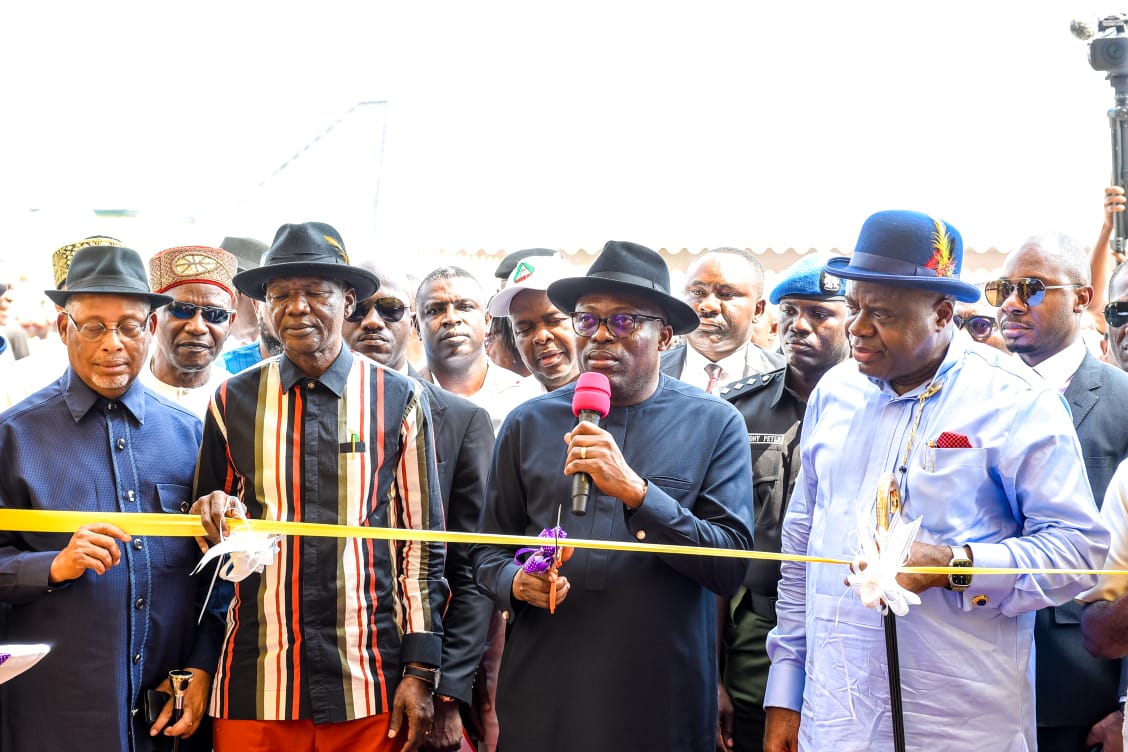
Rivers State Governor, Sir Siminalayi Fubara, has explained that in the heat of political crisis staged against his administration in 2023, he committed to improving the welfare of Rivers workers in order to have a well-motivated workforce to achieve the goals of the Rivers First mantra.
The Governor stated that the resultant industrial harmony has now become unprecedented as workers feel more valued, supported, and resolved to be more productive on an increased efficiency and profitability scale.
Governor Fubara gave the explanation while inaugurating the one-storey twin-building Labour House constructed by the administration of Governor Douye Diri, in Yanagoa City, the Bayelsa State capital, yesterday.
The Governor recalled that while en-route Abuja for a reconciliatory political meeting to find solutions to the 2023 political crisis, his mind kept drifting to what could be done to give hope and cushion the hardship faced by Rivers workers.
Governor Fubara said he made the decision, therefore, to pay Christmas bonus of N100,000 to every worker, across grade levels in December, 2023, and extended the gesture to retirees in 2024.
The Governor stated: “On the 18th of December, the year of Our Lord 2023, I was on my way to Abuja for a reconciliatory meeting, and I was thinking: what will I do for my people – my primary constituency, who are the civil servants?
“We all know that the salary is not enough during the Christmas period. I knew we had a lot of challenges at that time, and it would be difficult for me to do the 13th month.
“But, however, even if I had to do the 13th month, it would also be a cheating to the lower level workers because some of them would have less than N100,000. So, I decided that I was going to do a bonus of N100,000 to all workers. That was my meeting with the Accountant-General while I was on my way to Abuja.”
Governor Fubara said: “After the meeting, I was weakened in my spirit. But on my way back, I said no matter the sadness, I still need to make my people happy.
“And even in the face of that most difficult time of our administration, we made all the civil servants very happy by giving everybody N100, 000 for Christmas that year.”
Governor Fubara pointed to the letter of appreciation written to him by the leaderships of Nigeria Labour Congress (NLC), and the Trade Union Congress (TUC) due principally to the fact that the gesture was extended to all pensioners in 2024, while also seeking to give him an award of recognition.
The Governor stated that what had been done has contributed to the industrial harmony enjoyed in Rivers State, as according to him, every labour issue has also ended on the dialogue table.
Governor Fubara said: “It is not because we are meeting all their needs, but because we are putting human face to governance. We are not running it like Nebuchadnezzar’s time.
“We are not running it like the Babylonians. We are running it with the Jesus style where love takes the lead over everything. Where love is what should be in front and behind.”
Governor Fubara noted that what the Bayelsa State Government has done shows there is good relationship existing between labour and the administration of Senator Diri.
The Rivers State Governor advised the organised labour in Bayelsa State to consider the gesture, not as a right but a privilege so that they can embrace it wholeheartedly, defend, cherish, and protect it, and ensure that nobody comes between them and the government to cause friction.
Governor Fubara also expressed sadness over the demise of Chief Edwin Clark, a leader, he noted, will be remembered for his positive impact on many aspects of national and régional issues.
He said, “We are here, we just observed a minute silence for the death of our hero, Pa Edwin Clark. What is he remembered for? For his courage, truthfulness, doggedness, and the survival of this region.”
Governor Fubara told Senator Diri: “I want you to continue to stand for same thing, and I can see that you are standing for what is right. That is what history will remember you for.
“History will not remember anyone for any destructive thing, don’t deceive yourself. Money and material things cannot be taken for a good name. So, please continue to do what is right. History and the good people of Bayelsa will forever remember you.”
Governor Fubara assured that his administration will promote a robust relationship between Rivers and Bayelsa, unlike what it was 15 years ago, which is why all legal battles hitherto instituted in court have been withdrawn and would be settled out of court.
He added, “That is the first thing to show our commitment that we are in a mutual relationship and ready to make progress. You said it here, Rivers cannot develop without Bayelsa. Bayelsa also cannot make progress without Rivers. That is the truth.”
In his speech, Bayelsa State Governor, Senator Douye Diri, said the project was started by the administration of his predecessor, Senator Seriake Dickson, but quickly added that he has completed it to provide the organised labour in the State a place to conduct their activities, while using it as a platform to voice their concerns, access support services, and engage in constructive dialogue with his administration.
Senator Diri, who commended Governor Fubara for his exemplary labour-friendly policies that have promoted workers’ welfare and industrial harmony, said his administration has so far paid N20billion to servicing pensions and gratuities, hoping to upset all outstanding indebtedness by the end of his second tenure.
In his remarks, Bayelsa State Commissioner for Labour, Employment and Productivity, Mr Odoko Saturday Omiloli, said the magnificent Labour House is a testament of the commitment of the Prosperity Administration of Sen. Diri to promote the welfare and well-being of workers in the state.
In their joint address, both Trade Union Congress (TUC) and Nigeria Labour Congress leaders thanked Governor Diri for building a befitting edifice for them, and pledged to sustain support to his administration.
Featured
Tinubu, Buhari, Others Mourn As Edwin Clark Dies At 97
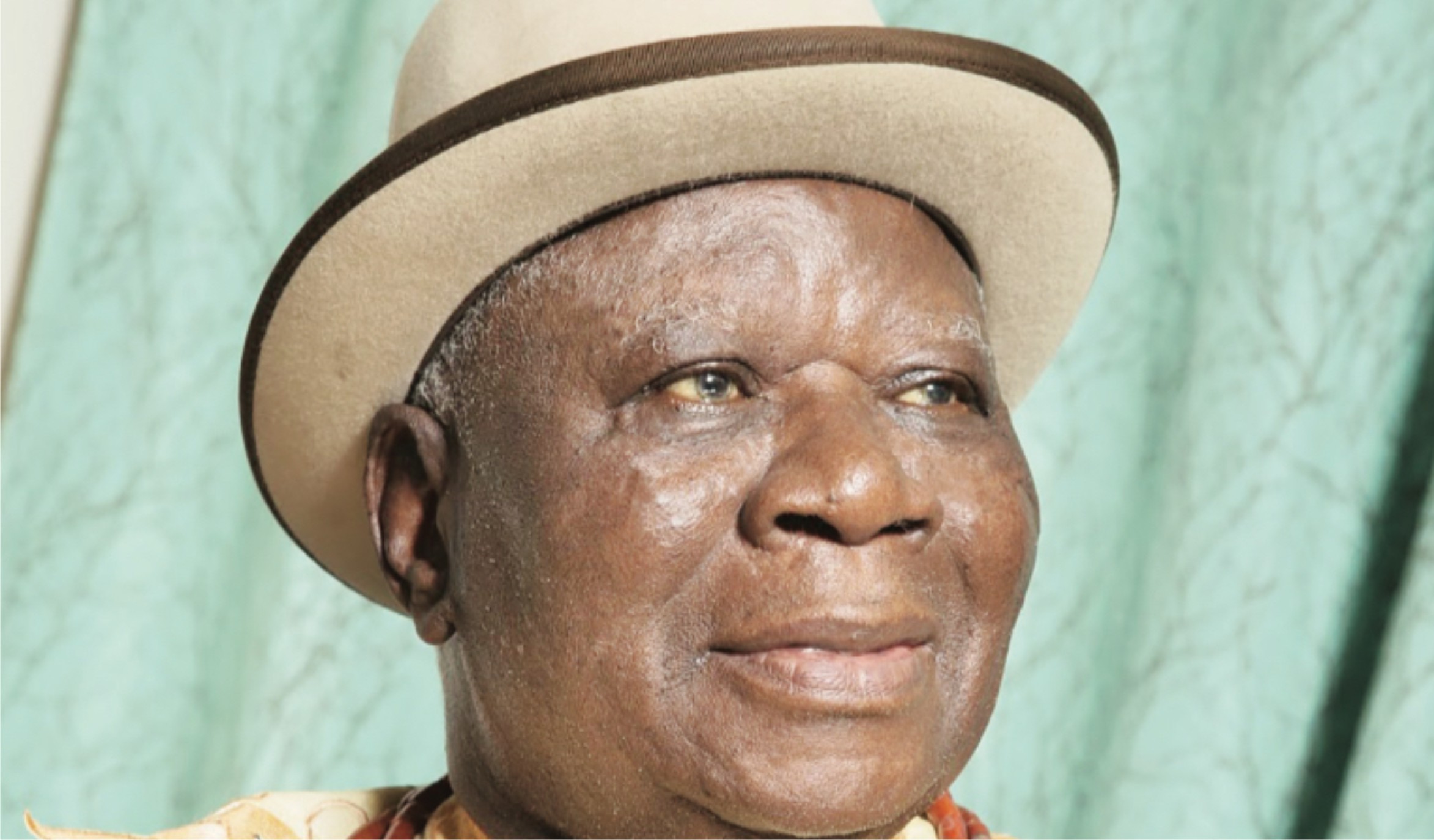
President Bola Tinubu has expressed sadness over the passing of former Federal Commissioner for Information and respected leader of the Pan-Niger Delta Forum, Chief Edwin Clark.
Tinubu’s condolence message was contained in a statement issued by the Special Adviser to the President on Information and Strategy, Bayo Onanuga, yesterday.
Tinubu said, “He led an illustrious life marked by dedicated service, at different times, to the nation and his community as a councillor, state and federal cabinet member.
“He was also a passionate advocate for resource control, economic and environmental justice in the Niger Delta.”
The statement reads: “On behalf of the federal government, the President extends his condolences to the Edwin Clark family, the Ijaw nation, the people of the Niger Delta, and the government of Delta State. President Tinubu mourns Chief Clark and describes his passing as a deeply sobering loss.
“Reflecting on the life of the late statesman, the President says Chief Clark was a towering figure whose influence was felt across Nigeria’s political firmament for nearly six decades. The President states that Chief Clark was a courageous leader who stood for what he believed in and was never afraid to stand alone in the face of injustice.
“Chief Clark spoke for the Niger Delta. He spoke for the nation. His views and interventions on national issues were distinct and patriotic. Pa Clark, a lawyer and educationist, believed in a united Nigeria, and until his last breath, he never stopped reaching out to people from different parts of the country to work together to preserve national unity based on justice and equity.
“As an astute politician, his political opponents never doubted the weight of his words, his confidence, and his conviction when he spoke. Indeed, a patriot has transitioned to the great beyond. History will remember him as a man who fought gallantly for the rights of the people of the Niger Delta, unity in diversity, and true federalism. I know many generations will remain proud of how his efforts contributed to national prosperity and stability.”
Tinubu prayed for divine comfort for Chief Clark’s family, friends, and all those affected by this significant loss.
Clark died on Monday at the age of 97.
His demise was announced by a representative of the family, Prof. C. C. Clark, in a statement Tuesday.
The statement read, “The Clark-Fuludu Bekederemo family of Kiagbodo Town, Delta State, wishes to announce the passing of Chief (Dr.) Sen. Edwin Kiagbodo Clark OFR, CON on Monday, 17th February 2025.
“The family appreciates your prayers at this time. Other details will be announced later by the family.”
Clark’s death is coming on the heels of the passing of Afenifere leader, Pa Ayo Adebanjo, who died at the age of 96 just a few days ago.
Both Clark and Adebanjo are known for contributing to the political development of the country.
Meanwhile, former President Muhammadu Buhari has also mourned Clark, describing him as an iconic statesman.
Buhari, in a condolence statement yesterday, said he death of Clark had caused deep sorrow in his heart and that of many in the country.
The statement read in part: “Late Chief Edwin Clark was a leader dedicated to reforms whose commitment to the development of his community and the nation would always be remembered. His death caused deep sorrow in his heart, and that of many, and his departure was a loss for the nation.
He is an iconic statesman”.
The former president maintained that the late Ijaw leader had left an indelible imprint on the nation and that in his passing, Nigeria had lost an iconic statesman and a distinguished leader.
He added that his commitment to the country’s unity would be respected by generations to come.
Buhari further urged the Clark family and fellow citizens in the Delta region of the country to uphold his numerous achievements.
Also, former Senate President, Bukola Saraki, has described the late PANDEF leader as a man of great conviction.
In a brief message posted via his verified X handle, yesterday, Saraki praised the elder statesman’s unwavering conviction, stating that Clark stood firm in his beliefs until the very end.
“Chief Edwin Kiagbodo Clark was a man of great conviction who stood firm for what he believed in—right to the very end,” Saraki wrote.
He added that Clark’s passionate advocacy for justice and equity would be deeply missed by Nigeria, the Ijaw nation, and the Niger Delta, for whom he was a tireless advocate.
“His death marks the end of an era—an era of principled leadership. He was one of the movers and shakers of the Second Republic Senate, in which my father served as the Leader of the Senate.
“On behalf of my family, I extend our heartfelt condolences to the Clark family, the entire Ijaw community, the people of the Niger Delta, and all Nigerians who mourn the loss of this extraordinary leader,” the former Senate President stated.
A towering figure in Nigerian politics and a relentless advocate for the rights of the Niger Delta, Clark was a lawyer, administrator, nationalist, and freedom fighter.
He served as Commissioner for Education in the Mid-Western Region from 1968 to 1971, and later as Commissioner for Finance and Establishment in the defunct Bendel State between 1972 and 1975.
At the federal level, he was appointed Commissioner for Information in 1975 and subsequently became a Senator from 1979 to 1983.
Beyond his political career, Clark was a leading voice for regional and national unity. He was also known for mediating peace among warring communities and politicians in the Niger Delta region.
Featured
We’re Genuinely Opening Up Kalabari Land For Development, Says Fubara

Rivers State Governor, Sir Siminalayi Fubara, has explained that his administration is courageously executing strategic projects that are opening up Kalabari land for unprecedented development and economic growth.
Governor Fubara made the explanation when he received on solidarity visit, a delegation of monarchs, political leaders, elders, women and youths of Kalabari Ethnic Nationality, led by the Amanyanabo of Abonnema, King Disreal Gbobo Bobmanuel, at Banquet Hall of Government House in Port Harcourt, last Tuesday.
The Governor stated that while previous administrations avoided executing the original plan for the Trans-Kalabari Road project due to cost implications, he has ventured into it, and driving the process steadily in order to link Kalabari land to the State capital.
Governor said: “Somebody said, if I don’t do it for my people, who will do it for them. We ventured into the Trans-Kalabari Road, we didn’t close our eyes. Our eyes were open because we knew what we were entering into.
“It is not a joke; it is a big project. We believe that at the end of that project, the level of development that it will attract to that line of entry into Kalabari will be very unprecedented.
“Issues of insecurity from our waterways will be reduced because, at that point we are doing road, people won’t be using the river anymore. The cost of living will also be cheaper.”
Governor Fubara further asserted: “So, you understand that your interest, your safety, your development is key to us. It is not about the number of years that we are going to be here; what is important to this government is the impact we make while we are here.”
Responding to their unanimous endorsement to see him run for a second term in office, Governor Fubara said power belongs to God, and He gives it to whoever finds favour in His sight.
Governor Fubara, however, stated that if God so approved of it, even those who are regrouping against him will not see the path God will lead him because they cannot scuttle such plan.
He added, “Power belongs to God. So, you see, I like believing that we don’t have any problem. When we get to the bridge, we will cross it. If we can break the bridge, Moses will come and create a road for us. So, you don’t need to worry.
“We will cross the bridge. We will cross it in a way that our enemies will be struggling; they won’t see where we are passing. So, don’t worry.”
Governor Fubara acknowledged the immense support to him by Rivers Ijaw, and urged particularly the Kalabari people to stand with honour in their unalloyed support for his administration, which will neither abandon them nor fail to deliver quality projects to the people.
Governor Fubara also responded to their requests and informed them that his administration has completed the Emohua/Tema Junction Road project, and ready to inaugurate the Degema Zonal Hospital in May.
He said the Health Commissioner has been directed to assess the state of the Abonnema General Hospital for immediate rehabilitation, while promising to address the issues of shore protection in the area.
Governor Fubara assured that with the Abonnema sandfilling works completed, the phase two will commence that will include Buguma, explaining that the Commissioner for Works has been tasked to do the assessment immediately.
On the request for the establishment of tertiary institution in the area, Governor Fubara said his administration is already inaudated with memos asking that the off-campus of Rivers State University established previously be revised because it has become difficult to sustain them, but quickly added that the government will consider the establishment of a viable institution that will provide technical and entrepreneurial skills to the people in a sustained manner.
Reading the address of Kalabari Ethnic Nationality, Chief Pawariso Samuel Horsfall, announced that the entire Kalabari people have unanimously endorsed Governor Fubara for a second term, and vowed to mobilise Rivers people to ensure electoral victory for him in the 2027 gubernatorial election.
In his speech, the leader of the delegation and Amanyanabo of Abonnema, King Disreal Gbobo Bobmanuel, expressed the profound thanks of the Kalabari people to Governor Fubara for his genuine love for them, as evidenced in the types and quality of development projects delivered or being executed in the area.
-
News4 days ago
Niger Republic Bars Nigerians With ECOWAS Passport
-
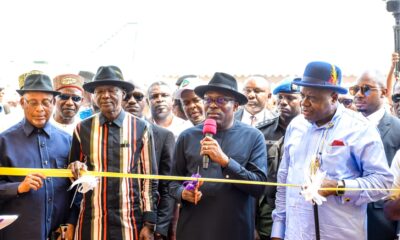
 Featured4 days ago
Featured4 days agoWe Support Rivers Workers To Feel Valued, Productive, Says Fubara …Inaugurates Bayelsa Labour House
-

 Niger Delta4 days ago
Niger Delta4 days agoBipi Celebrates Gen Asabuja On Birthday
-
Sports4 days ago
Former President Kicks Off New Bayelsa Stadium Project
-
Business4 days ago
NESGAS, Cakasa Sign Deal For 50,000MT LPG Storage Facility In Rivers
-
Rivers4 days ago
Redeem Your Financial Pledges, Oxfam Urges Nations
-
Opinion4 days ago
Leveraging On Manpower Dev: Tai LG Model
-

 Politics4 days ago
Politics4 days agoN’Assembly Adjusts 2025 Budget, Raises Recurrent Expenditure


